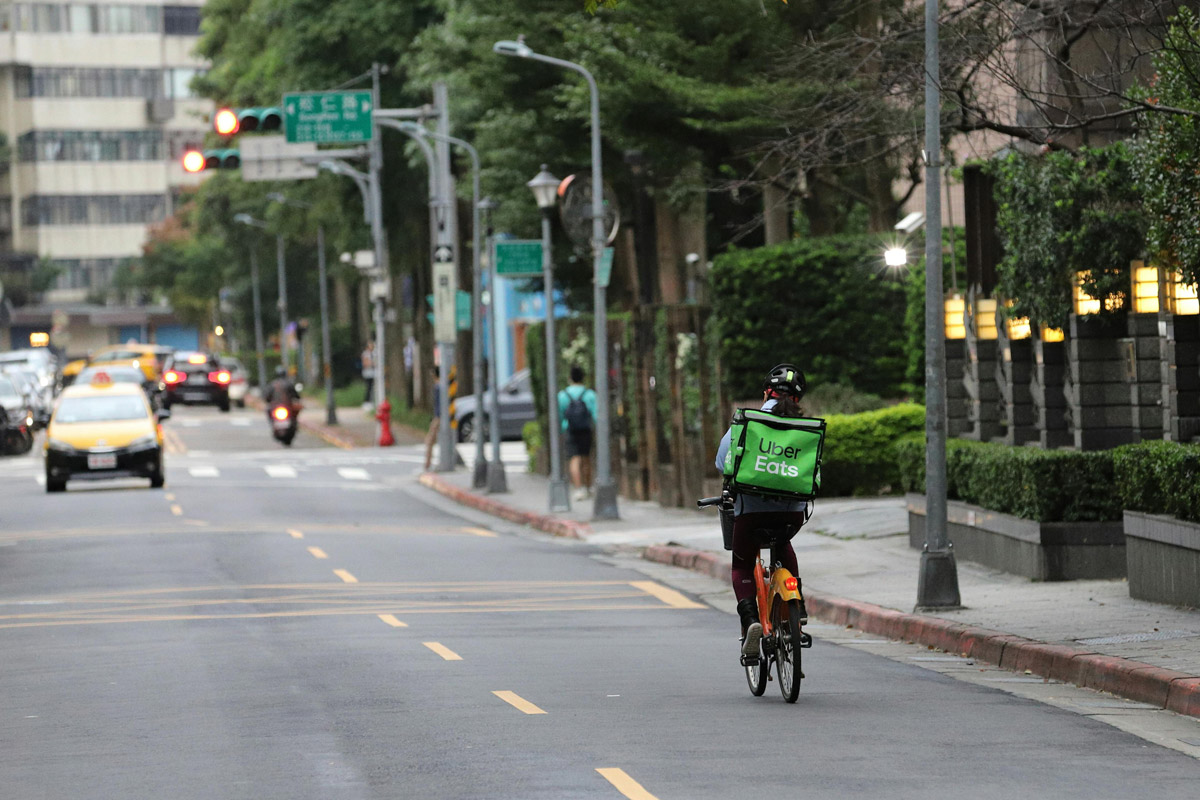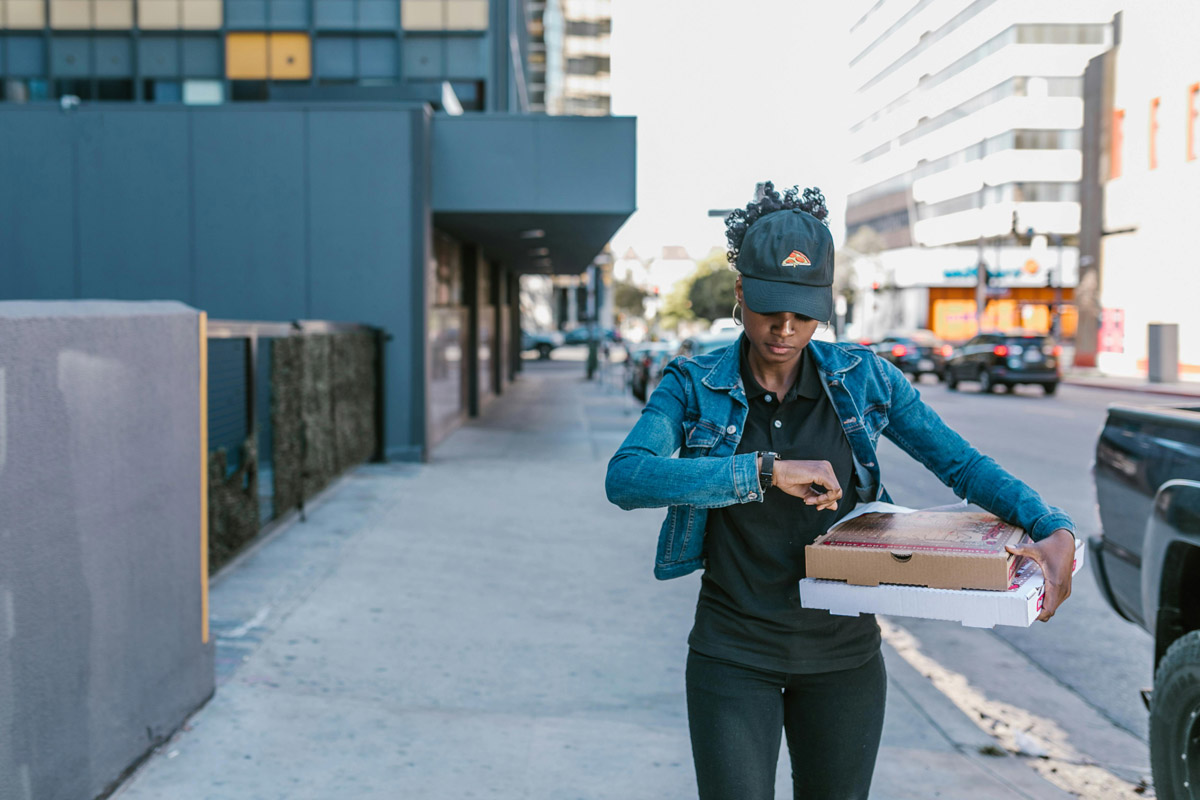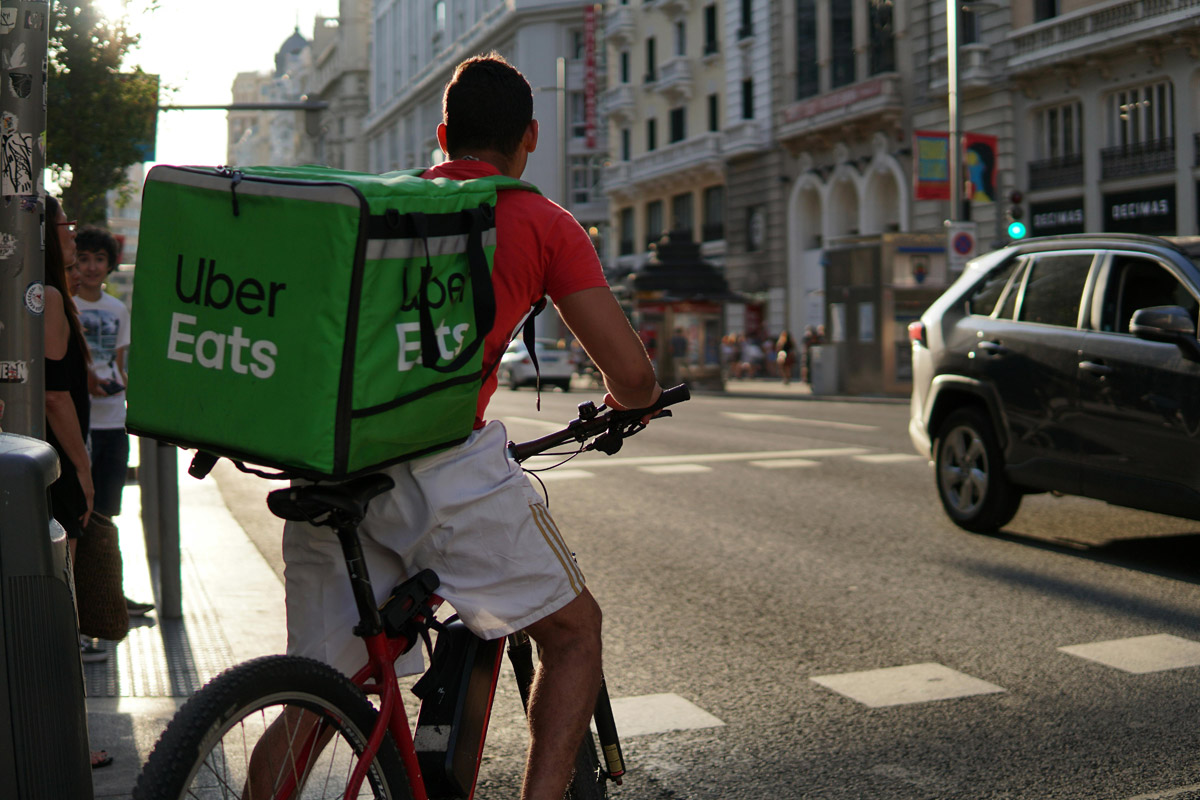
Two delivery apps, both alike in service fees, set to vie in a court of law, where Uber Eats makes its plea. From historic competition devolved to aggressive monopoly, where DoorDash threatens vendors with heavy penalties. Or, Uber Eats is suing DoorDash for engaging in anti-competitive tactics. Basically, Uber claims that DoorDash is throwing weight around like a mob boss, pressuring restaurants not to work with other delivery apps or else face severe fines and/or reduced visibility on DoorDash. What kind of pressure? Uber alleges that restaurant partners describe it like having a “gun to their head.” I guess someone ordered a side of hyperbole! Here is the full menu of crimes Uber is accusing DoorDash of:
Uber has filed a lawsuit against rival DoorDash, accusing the company of anti-competitive tactics. The complaint, submitted to the Superior Court of California, claims DoorDash’s business practices unfairly disadvantage competitors and harm restaurant partners by limiting their ability to work with multiple delivery platforms.
At the heart of the lawsuit, Uber accuses DoorDash — the leading US food delivery service — of pressuring restaurants into exclusive or near-exclusive agreements for first-party delivery services. These services involve fulfilling orders placed directly through the restaurant’s websites and apps.
Uber claims DoorDash’s alleged tactics include threatening restaurants with substantial financial penalties or reducing their visibility on the platform if they choose to partner with competing services. According to Uber, several customers have likened the pressure to having a “gun to their head” and referred to DoorDash as a “monopolist.”
The lawsuit highlights an example involving an unnamed “significant restaurant company” that reportedly withdrew from a planned Uber Direct rollout across several brands. Uber asserts that the restaurant made this decision after DoorDash allegedly threatened to raise rates for its third-party delivery services if Uber Direct continued to be used.
Sarfraz Maredia, Uber’s head of delivery for the Americas, added that the company has increasingly received complaints from restaurants. According to Maredia, these restaurants claim that DoorDash’s tactics are restricting their freedom and punishing them for seeking better alternatives.
DoorDash, however, has strongly refuted these allegations. A company spokesperson dismissed Uber’s claims as “unfounded” and attributed them to Uber’s “inability to offer merchants, consumers, or couriers a quality alternative.”
This legal battle underscores the intense competition in the food delivery market, particularly within the white-label delivery services sector. Both Uber and DoorDash launched such services in 2020. Both allow restaurants to manage orders through their own platforms, while the delivery companies handle the logistics behind the scenes.
Uber claims that DoorDash currently manages first-party deliveries for over 90 percent of the largest enterprise restaurants in the US, and alleges that this dominant position was achieved through anti-competitive practices.
If Uber’s lawsuit is successful, DoorDash could face several significant consequences. It may be required to pay substantial damages to Uber. While the exact amount is not specified in the lawsuit, Uber asserts that it has lost millions of dollars in revenue due to DoorDash’s alleged practices.
The court could also order DoorDash to adjust its business model, particularly in how it negotiates contracts with restaurants. This could potentially involve prohibiting exclusive or near-exclusive agreements for first-party delivery services.
Additionally, a favorable ruling for Uber might allow smaller competitors to gain traction, potentially creating a more diverse and competitive market landscape.
Furthermore, a victory could trigger increased antitrust scrutiny from regulators in this space — an outcome Uber might ultimately regret.
Yeah, about that last note — I don’t think Uber has to worry too hard over their lawsuit leading to more rigorous antitrust regulations. Not under this administration. Do I believe that DoorDash really used these dirty tricks? Probably. Do I think Uber would use the same tricks if it put them on top instead? Highly likely. Do I know in my gut that at the end of the day, it’s the consumers and delivery drivers who will end up footing the bill of any legally-mandated changes? Beyond a shadow of a doubt. Case in point: in NYC we dared to raise the minimum hourly wage for delivery drivers (a move that both DoorDash and Uber lobbied against). So in retaliation, DoorDash slapped us hungry orderers with a $1.99 “NYC Regulatory Response Fee.” I know someone who’s retaliated in turn… by no longer tipping at all. Something’s rotten in this system, and it ain’t the food.
Photos credit: Pablo Cordero, P Hsuan Wang and RDNE Stock Project on Pexels














I’d like to sue Door Dash for never delivering my order, but that’s not going to happen.
⭐️⭐️⭐️⭐️⭐️ puns very much appreciated from this neighborhood English professor!
It’s weird that Uber – which runs riot on cities with their rideshare stuff and was a mob boss to Lyft – is playing the opposite in the food delivery sphere.